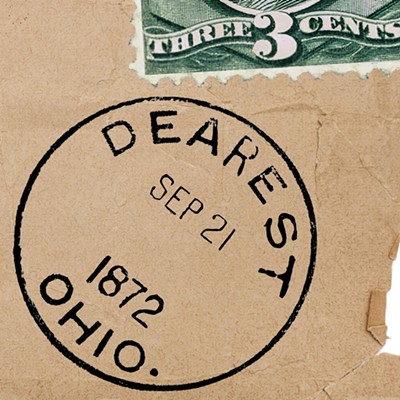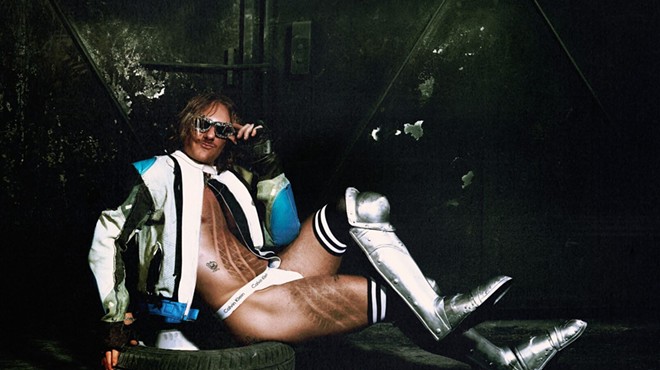In this adaptation by Gary Fleder (Don't Say a Word) , the temptation is surely to swing along with Gene Hackman's Rankin Fitch (if only for his totally phony, but grand, name). Fitch is the new corruption to our honored justice system that we naïve spectators must be warned about -- a jury consultant. Such creatures apparently aren't content to simply whisper speculative tips to presiding attorneys during voir dire; why, they amass fantastic dossiers on each prospective juror, rig the entire courtroom for their audio and visual convenience, and will stop at nothing -- nothing! -- to ensure that the jury will fall to their side.
Fitch is the best (or is it worst?): He costs a fortune, but his services will be worth every dime to his clients, a consortium of gun manufacturers who fear the outcome of a potentially precedent-setting trial in New Orleans, where the widow of a man gunned down in a workplace shooting is suing a gun company for civil damages.
The widow is ably represented at trial by the mostly moral Wendall Rohr (Dustin Hoffman), a purposefully rumpled do-the-right-thing attorney. Rohr's not above hiring his own jury consultant, though his still-wet-behind-the-ears sidekick Lawrence Green (Jeremy Piven) is learning tricks from Rohr and not the other way around. Hoffman goes for earnestly schlubby, and your head counsels you to cheer for the good guy who only occasionally trips. But it's Hackman's Fitch who'll make your heart flutter.
He's a crafty devil, all right -- a well-clad snake, who slithers into the back of the courtroom, literally sampling the air with his little pointy tongue ("furniture polish, cheap cologne and body odor," he sighs with satisfaction). It's all so deliciously obvious -- Fitch's Mephistophelean goatee, the jury-manipulation headquarters he sets up in the naughty French Quarter (hidden behind a costume shop -- oh wicked disguise). Fitch may be bad, but he's consciously and comfortably bad; the self-confidence of his foul convictions is a good deal sexier than Rohr's food-stained tie and moral waffling.
Hoffmann vs. Hackman sounds like good fun, but that's not all: You also get Gen X's favorite oddball leading man, John Cusack. Cusack is Nicholas Easter, a seemingly reluctant juror, who -- my goodness! -- turns out to also be hell-bent on twisting the jury. He's aided from the streets by accomplice Marlee (Rachel Weisz), also of hidden agenda, but perfectly capable of going head-to-head with both Rohr and Fitch. Ultimately, there's going to be a three-way -- or is it a four- or two-way? -- battle for the control of the jury -- and for the very soul of Justice herself!
The narrative is utterly preposterous, but no less entertaining for it. The characterizations are mostly one-dimensional, the conclusions are pat and remarkably convenient, and the speed with which background information is collected on a random assortment of jurors -- and its volume -- defies everything we know about eking information out of bureaucracies. Maybe it's my years of drudgery as a file clerk, but I never fail to get a thrill watching scenes where from mountains of data, perfectly pertinent facts materialize out of thin air with a simple keystroke or two, and flash crystal-clear on a huge screen: I'm a sucker for gigantic surveillance and control rooms.
In Grisham's novel The Runaway Jury, the evil deep-pockets entity was Big Tobacco. On one hand, which big nasty corporation might be liable hardly matters -- it's just a device to set the plot in motion. Yet to the armchair jurist playing along, there is a significant difference. Between Big Tobacco and the affected user -- the plaintiff would argue -- there's nothing but persuasive and possibly deceptive marketing. But no matter how much a gun manufacturer may advertise its products' features, it's an individual who makes a conscious decision to commit a harmful act upon a third party. Hence, while Grisham's novel presents something of a parlor debate -- how culpable are tobacco companies for health damages vs. how informed their customers were -- the film's script presents a query with an easy loophole for any jury: It's illegal to murder somebody with a gun, no matter how widely available and gloriously touted firearms are. Thus I found the premise of the "unknowable" precedent-setting outcome -- the device critical to the plot's outrageous acts -- to be less fertile when shifted from tobacco to guns.
Still, what are details to a cracking good story? Fleder keeps the pace moving briskly, and it's a pleasure to watch these four lead actors circling and snapping at each other, even if the end isn't as satisfying as the middle. Runaway Jury isn't a strict courtroom drama: It's a thriller with pretensions to a morality play, spiced up with a little action and liberally laced with high-tech gadgetry. It has roots in reality (Grisham's novel was set amid real tobacco cases in Mississippi), but the plot is so absurd and so dependent on cutting-edge technology that it may be a new genre entirely: Call it "fantasy legal thriller."















